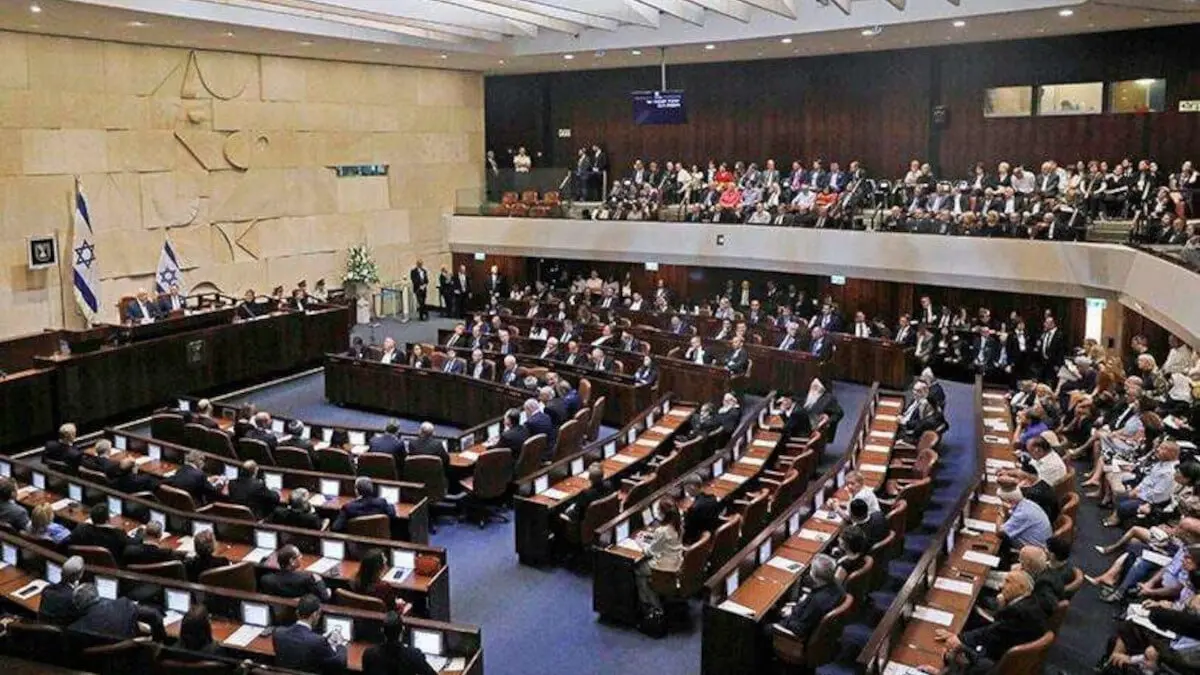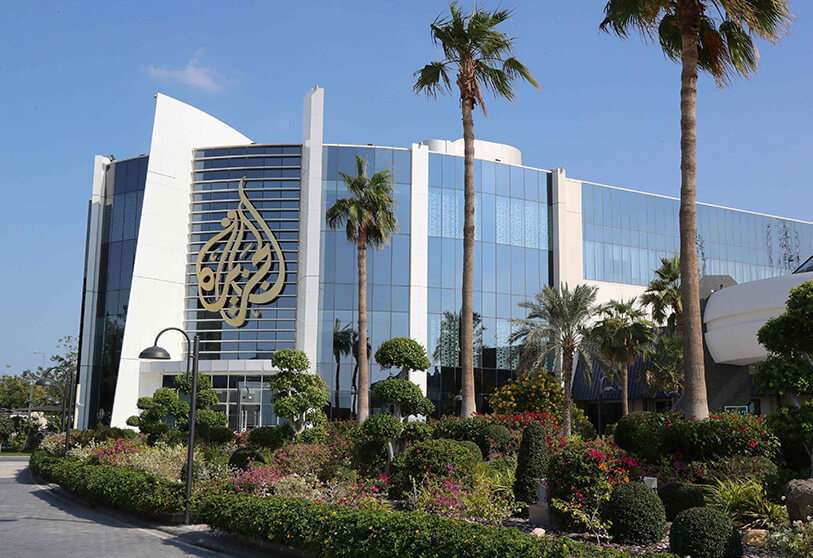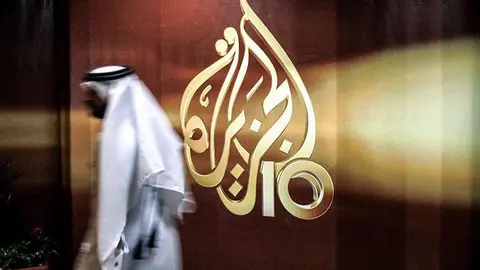Israel's parliament gives green light to the closure of Al Jazeera

The Israeli parliament has passed a bill to suspend the operations of the Qatari state-funded Al Jazeera channel in the country if the security services deem it to be damaging national security.
The so-called Al Jazeera law, passed by 71 votes to 10, allows the Prime Minister and Communications Minister to order the temporary closure of foreign networks operating in Israel, confiscate their equipment, block the broadcaster's television broadcasting, close its offices and block its website under certain conditions. Al Jazeera has offices in Jerusalem, as well as in Gaza and Ramallah.

Under the terms of the law, any order to close a foreign news channel must be submitted within 24 hours for judicial review by the presiding judge of a district court, who must then decide within three days whether to change or shorten the period of the order.
The law, branded by the United States as "worrisome," was passed as a temporary law and will expire on or before July 31 should the government lift the emergency declaration, notes The Times of Israel.
White House Spokesperson Karine Jean-Pierre says the U.S. is 'concerned'' by Knesset move to shut down Al Jazeera pic.twitter.com/ehSIRXbfiH
— i24NEWS English (@i24NEWS_EN) April 1, 2024
Communications Minister Shlomo Karhi led efforts to pass the law and promised after the final vote that the Qatari media outlet would be shut down in the "coming days", assuring that there would be "no more freedom of expression for Hamas spokesmen in Israel".
According to Karhi, the law is aimed "against those who use freedom of the press to harm Israel's security and Israeli soldiers", as well as those "who incite terrorism in times of war".
For his part, Prime Minister Benjamin Netanyahu has announced his intention to "act immediately" in accordance with the new law to stop the channel's activity.

Last November, Israel ordered the closure of local broadcasts of Al Mayadeen, a pro-Iranian Lebanese channel, on the grounds that its coverage is "harmful to the state of Israel". Al Mayadeen, considered an "enemy-friendly" channel, maintains an editorial line favourable to Hezbollah, a Tehran-backed Lebanese militia that has been firing missiles into Israeli territory since last October, prompting the evacuation of thousands of people from northern Israel.
For similar reasons, Al Jazeera has been targeted since the war began because of its links to Hamas. According to Israeli authorities, the Qatari media outlet is influenced by the terrorist group and endangers the Israel Defense Forces in Gaza.
In October, the Communications Minister's office said the campaign to shut down Al Jazeera in Israel was based on "evidence that it is aiding the enemy, broadcasting propaganda in the service of Hamas, in Arabic and English, to viewers around the world, and even passing sensitive information to the enemy".
Al Jazeera accused of supporting extremist groups in Middle East
Criticism of Al Jazeera's biased coverage, however, has not only come from Israel. In fact, last summer, the Palestinian Authority - led by Mahmoud Abbas - threatened to take action against the Qatari broadcaster for its "unbalanced" coverage of Palestinian affairs.
This is not the first time the Palestinian Authority has spoken out against Al Jazeera. Ramallah has also accused the Qatari broadcaster of promoting division among Palestinians and serving as a platform for Hamas.

Even journalists who have worked for Al Jazeera have denounced the media for "violating journalistic ethics" and "explicitly supporting terrorists". Mohamed Fahmy and Mohamed Fawzy, both former employees of the channel, called on Al Jazeera years ago to stop "endangering the lives of its staff and to refrain from sponsoring groups such as the Muslim Brotherhood and Al-Nusra - an al-Qaeda affiliate - and other terrorist groups".
Analysts, such as David Pollock, a senior fellow at the Washington Institute and director of the Fikra Project, have also claimed that Al Jazeera's "popularity" and "credibility" had declined considerably in recent years.

Pollock, who was also a senior adviser to the US State Department on the Middle East, considers Al Jazeera to be "the official mouthpiece of Qatar and other extremist groups, especially the Muslim Brotherhood".
Critics of Al Jazeera have also been denouncing for years the differences between the Arabic and English-language articles. In this regard, Pollock believes that "English speakers cannot fully understand what Al Jazeera is all about if all they do is watch Al Jazeera in English".









